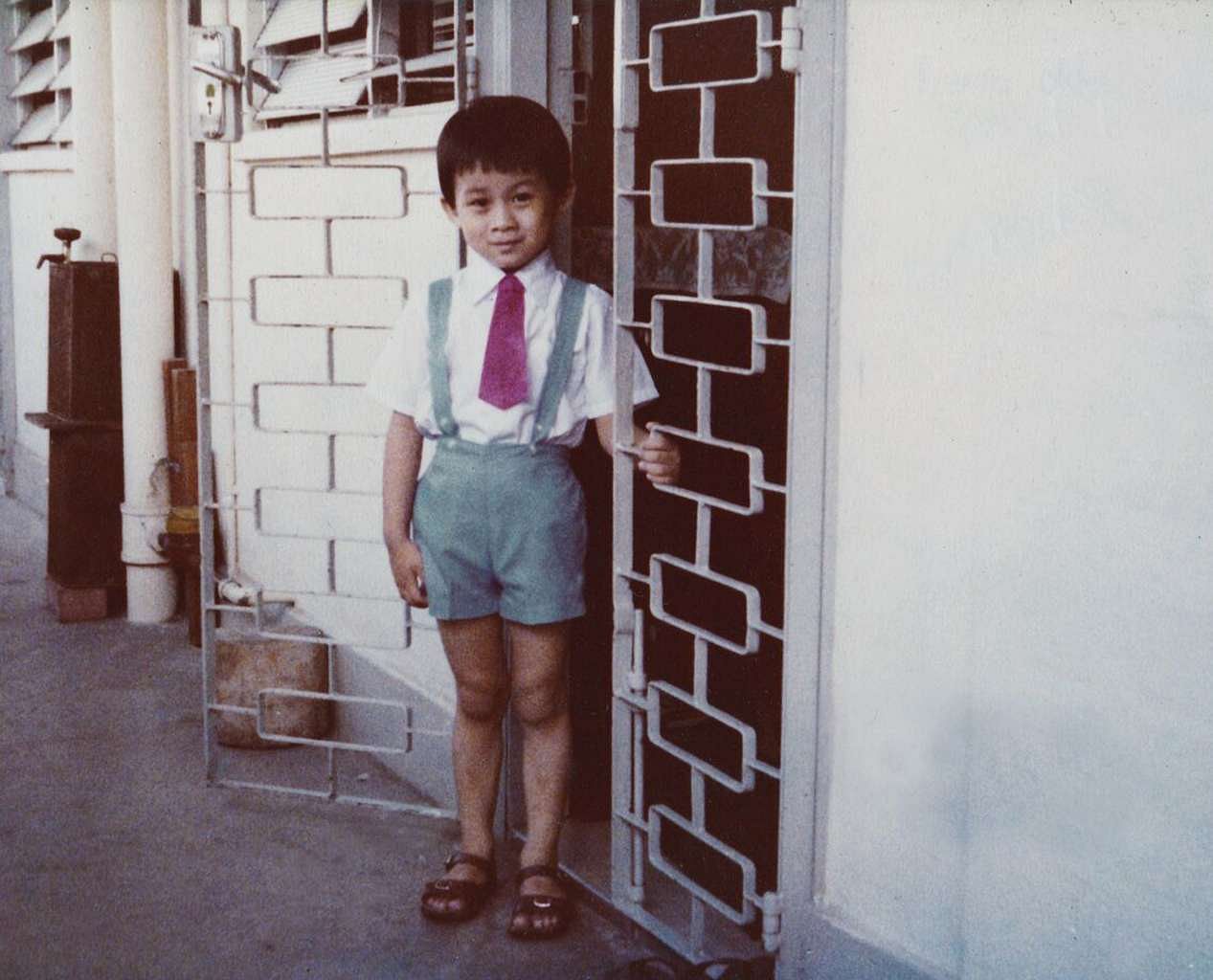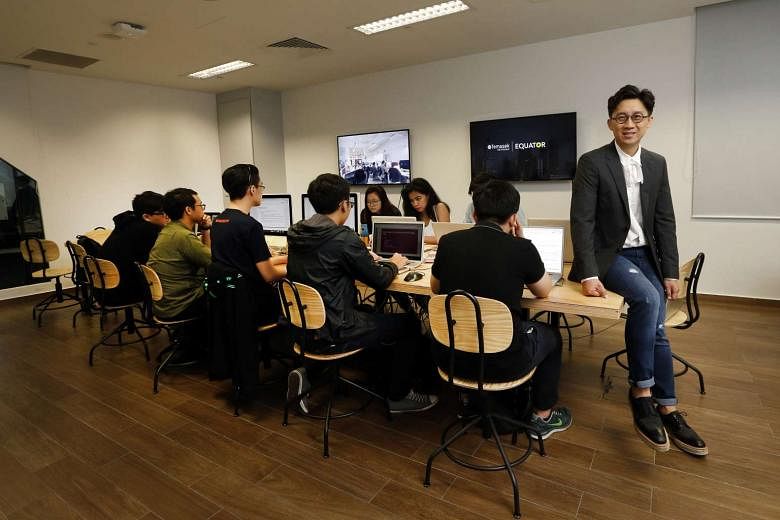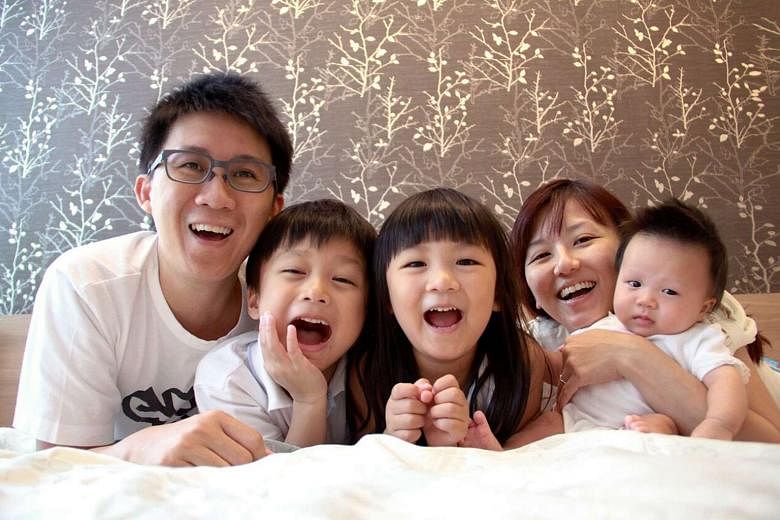Advertising boss Jeff Cheong, 41, knows how to generate buzz.
In recent years, the president of Tribal Worldwide Asia advertising agency has been the main man behind the scenes for well-received television shows and videos that his agency has collaborated on.
Commissioned by the Ministry of Communications and Information, these productions provide information about public policies using dialects that were once rarely heard onscreen, but which are familiar to many seniors, their target audience.
Mr Cheong drafted the script for the first 10-episode season of the drama series Jiak Ba Buay? (Eat Already?), named after a common Hokkien greeting. The series, which debuted last year, will be screening its third season this year.
Music videos and infomercials, which helped explain the Pioneer Generation Package to seniors, featured local getai artists in a riff on the Chinese classic, Journey To The West, racking up several hundred thousand views online.
The heartland-friendly spirit of these productions, which have won several advertising awards, has roots beyond the professional for Mr Cheong, an industry heavyweight who has been involved in winning business pitches for big-name accounts such as Singapore Airlines and Uniqlo, the Japanese fast-fashion giant.

In 2012, he recalls being offended when Singapore was ranked the world's most emotionless society on a survey by Gallup, the global polling firm.
He says: "I wanted to fight back. We need to reclaim the authenticity of our community, which has people who are passionate about life and about what they do."
In response, he spearheaded a three-year campaign, Singaporean Of The Day, which featured about 50 Singaporeans in online videos, sinking in $35,000 of his own money towards the effort. These Singaporeans ranged from acclaimed artist Lim Tze Peng to folks like great-grandmother Arumugam Gangabai, who recounted how she had hidden and saved her friend, a Chinese girl who had come over to play, when Japanese soldiers barged into her home during World War II, looking for Chinese victims.
Mr Cheong, who speaks three dialects - Hokkien, Cantonese and Teochew, has an interest in people and the community, which stems from his humble upbringing in a three-room HDB flat in Queenstown, where he lived with 10 family members.
He is the second of three children. His mother was a housewife and his late father was a tour guide, who became a driver later in life.
"It was quite fun living with everybody, there was a lot of chatter. Growing up, I've always been surrounded by a community, which has influenced how I relate to others such as my colleagues," he says.
While there were few toys and hand-me-downs, he has fond memories of picking durians and facing off against monkeys during visits to Pulau Ubin, where his grandparents lived. Doors were unlocked and neighbours often dropped by.
Dishes of food were frequently offered and the plate was never returned empty, even if it held just a couple of sweets, recalls Mr Cheong, who is married to financial analyst Faith Koh, also 41. They have three children, Seth, 13; Beth, 11; and Janneth, eight.
He recalls, with a chuckle, how an attempt at recreating such "kampung spirit" flopped.
When their family moved to their first flat in Bedok, Mr Cheong and his wife baked cookies for their neighbours, some of whom immediately said "don't want" after opening the door, probably thinking the couple were unwelcome salespersons.
As a child, he discovered his creativity through art - which became, for a while, a thorn in his family's side - and an instinct for business, both of which have bolstered his career.
As a six-year-old in kindergarten, he drew cartoons that he bartered for erasers, then later, when demand rose, for toys. His mother scolded him when she found out, making him close shop.
In Geylang Methodist Secondary School, a teacher noticed his talent and urged him to enter design contests and visit schools with design courses, like Temasek Polytechnic.
Drawn to the discipline of design and "the idea of creating things that serve a function or need", he took art as an additional subject for his O levels, which he needed for entry into Temasek Polytechnic.
As it turned out, he got an A1 for the subject and his O-level grades qualified him for junior college (JC), which set the stage for a confrontation.
"As the only son in an Asian household, family meetings were activated because I could go to a JC and chose not to. I was nearly thrown out of the house because of this," he says. His parents and other family members equated a graphic design course with the fine arts, saying that "artists get famous only when they die".
He persisted, easing their doubts as he put himself through the diploma course by giving tuition, graduating second in his cohort.
Then, misfortune struck.
While serving national service, he fell. He ignored the pain until about six months later, when he woke up one day unable to walk.
Doctors found that he had a hairline crack in his lower spine and he had to undergo surgery lasting 12 hours. The rehabilitation was painful as even bending slightly to brush his teeth hurt.
"But the lowest point turned out to be one of the highlights of my life," he says. "That was the point where I met my wife Faith, then a friend from church, who made the first move in contacting me. She helped me regain my confidence."
The arduous experience of making it back to health left him convinced of the need to "develop a strong mental focus".
Mr Aaron Koh, his friend and co-founder of the independent GOVT advertising agency, attests to this tenacity.
"When he has an idea, he pursues it, no matter what the odds are. He's not the kind of boss who sits at the desk making phone calls. While he has to answer to the board, he's still coming up with ideas, pitching ideas to clients, going down for shoots," says Mr Koh, who used to work for Mr Cheong.
Mr Koh recalls organising a flash mob at an event in Changi Airport with Mr Cheong, involving more than 400 people.
"He was there every step of the way. He didn't need to be; that's passion for the job. He talked to people there - aunties, uncles, people of different ages," says Mr Koh.
He added that Mr Cheong does not let hierarchy get in the way, for example, allowing him to work on the Uniqlo account even though he was in a junior position then. Tribal, part of the global advertising DDB Group, was among the first non-Japanese agencies to win a pitch for Uniqlo, an account Tribal held for a few years.
After starting out as a graphic designer at a publishing house, Mr Cheong went through a few jobs at dot.com companies. Despite the steep learning curve in moving from print to digital during the volatile dot.com era, he enjoyed keeping up with technology.
"I'm like a fidget spinner, always finding new things to do," he says.
His big break came in 2007, when he was part of the winning team at TBWA agency, which won the prestigious Singapore Airlines account after the carrier dropped its advertising agency of 35 years, Batey Ads, following a review.
After moving to Tribal, Mr Cheong rose through the ranks to become president in 2014. Under his watch, staff count has grown from four to about 120, with sales revenue yielding double-digit growth year on year. Tribal has also won several industry awards, including a Creative Agency Head of the Year award for Mr Cheong at the Hall of Fame Awards last year.
Award-winning local film-maker Royston Tan has worked with Mr Cheong for several years, directing the first two seasons of Jiak Ba Buay? and the Pioneer Generation videos. He says Mr Cheong has a diligent yet playful working style and the duo often bounce ideas off each other.
"Two of us are like kids holding balloons and running with them," says Tan, who describes Mr Cheong as an "energiser bunny" who occasionally sends him WhatsApp messages at 2am, sparking ideas that leave him unable to go back to sleep.
Once, Mr Cheong sent a text saying provision shops were like community centres, bringing people together. Tan said his dad had a provision shop in the 1980s. This kernel of an idea led to Tan's 2016 telemovie, The Provision Shop, which deals with diversity.
"That's the charm of working with Jeff. He inspires me to believe that certain things I don't think can happen, will," says Tan.
This year, Mr Cheong has been involved in training future talent and giving back to his alma mater.
Late last year, Temasek Polytechnic and DDB Worldwide, Tribal's parent company, launched Equator, a satellite office in the polytechnic, which provides job training for students.
It is the first time that a marketing company has set up an office in a school here.
The first cohort of interns, 20 final-year students from different disciplines, started classes in April. The intention is to train the students, get them to work on projects and hire those who make the cut.
Already, two apps - one that helps sharpen personal responses to emergencies like a terrorist attack and another that uses artificial intelligence in beauty products - are slated to be launched from this programme.
Mr Cheong says he is also learning from the millennials he trains, for example, from their hardiness and willingness to fight for ideas.
Nine years ago, when his two children were young, he was tempted to leave his promising career to freelance because of the punishing 16-hour days he worked.
Now, he fits in quality time with his family when he can, such as taking the kids on commercial shoots.
He says his work, informed by his community-mindedness, is also a means to communicate values to his children.
"I want to inspire my children to learn boldly and be civic-minded - they must do work that will enhance society," he says.
At 41, he is starting to see himself as a community elder. Referring to how seniors in society have their own stories to tell, he says: "It's important to transmit these stories, like an uncle storyteller."



